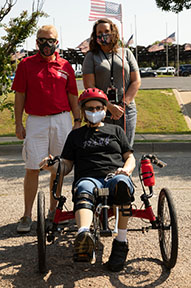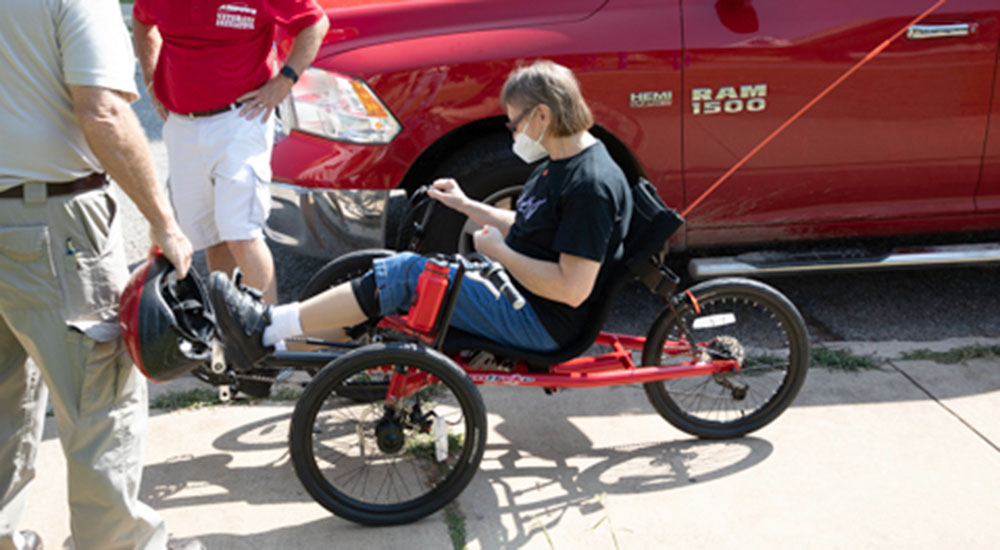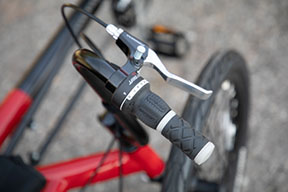Air Force Veteran Susan Hiler struggles with arthritis and is participating in the Therapeutic Recreation Clinic at the Oklahoma City VA Health Care System to increase her strength and stamina.
But she doesn’t want her disabilities to get in her way of enjoying life.
“Last year when I was doing Tai Chi classes for arthritis, my recreation therapist Stacy Lawton suggested I try a new type of bicycle.”
Lawton was referring to the AmTryke Tadpole Recumbent Therapeutic Tricycle. There are two types depending on a patient’s need. There is recumbent handcycle that allows a person to propel it with their upper body.
And there is the recumbent foot cycle propelled with their lower body.
Both styles are great for Veterans wanting to become active
“It felt like, ‘Wow, do I still know how to ride?’” said Hiler. “But with the recumbent bike, I thought ‘I love this, I can ride one of these.’”
With a generous donation to Oklahoma City VA by AMBUCS, a nonprofit service organization, many more disabled Veterans can enjoy the freedom of riding a bicycle again while improving their mobility and independence.
Veterans who wish to be considered for a recumbent bike should request a referral from their VA primary care provider. The Veteran is then evaluated to ensure this type of therapy would be useful for their disability.

Kent Clingenpeel, Amtryke Advisory Board chair and recreation therapist Stacy Lawton present Air Force Veteran Susan Hiler with her new therapeutic bike.
“We have to make sure that the Veteran is safe getting on and off the bike and is able to ride for a minimum of 30 minutes without an issue,” said Lawton. “They also need to be able to safely lift the bike into and out of their vehicle.”
Recreational therapists also work with Veterans to meet the requirements needed to ride the bike. This includes building stamina, losing weight, or increasing strength.
“Veterans are encouraged to participate in the therapeutic exercise clinics. We want them to get out of the house, not isolate at home. They need to get some exercise and spend time with their fellow Veterans.
Cycling has helped with PTSD
“There’s also the secondary component of improving mental clarity. Some Veterans tell us cycling has really helped with their PTSD.”
Hiler agrees.
“You meet other Veterans who have the same interests as you and you can talk with them where maybe you can’t talk to your spouse or family sometimes because they don’t understand. You see others in therapy who are just starting and struggling. But, they see me and I tell them that I don’t let my disabilities control me.”
As with all programs and services at the Oklahoma City VA, the goal is to keep Veterans healthy, both physically and mentally.
Phillip Ybarra is a public affairs specialist for the Oklahoma City VA Health Care System.
Topics in this story
More Stories
Bob Jesse Award celebrates the achievements of a VA employee and a team or department that exemplifies innovative practices within VA.
The Medical Foster Home program offers Veterans an alternative to nursing homes.
Watch the Under Secretary for Health and a panel of experts discuss VA Health Connect tele-emergency care.







